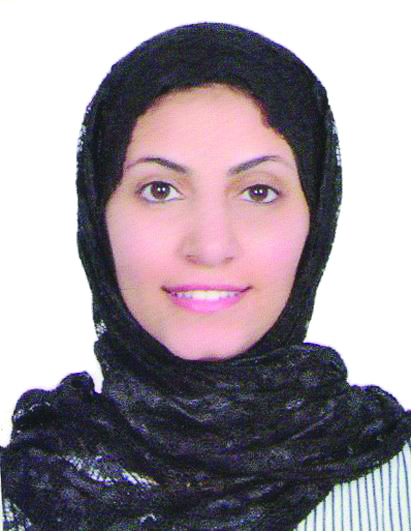A COCKTAIL of antibodies designed to resist coronavirus (Covid-19) is the latest addition to Bahrain’s upfront measures in fighting the spread of infection.
Regn-Cov2, an artificial drug for prophylaxis – which is the treatment given or action taken to prevent disease – is being administered to citizens and residents at the A’ali Al Shamil Centre since yesterday.
Studies have shown that the drug, approved by the US Food and Drug Administration (FDA), helps in preventing infection among those who have come in contact with Covid-19 positive cases by 81 per cent, as well as limiting the symptoms in those infected.
Regn-Cov2 has also received a positive review from the European Medicines Agency after an analysis of the quality, safety, and efficacy of the new combination.
Al Shamil Monoclonal Clinic’s Bahraini family physician Dr Aamal Mohammed Jassim told the GDN that a number of “eligible” people have been notified to visit the centre.

Dr Jassim
“The drug is a combination of two monoclonal antibodies which help in the treatment of Covid-19 positive cases and those who have come in contact with the infected,” she said.
“This drug, as proved by studies in the US, prevents disease up to 81 per cent in those tested negative for Covid-19 even after coming in contact with positive cases.
“While it helps in minimising the symptoms to the mildest in those infected.”
Dr Jassim said that “eligible” people included those aged above 65, and anyone aged above 12 with conditions including diabetes, asthma, chronic kidney and heart conditions and are immunosuppressive.
The intravenous (IV) drug is being administered in building seven.
“The IV takes 20 minutes and the person will be under observation for an hour, and the medical team will follow up with the person on the first, fifth and 10th days,” said Dr Jassim.
“The medicine has been proven effective on those who have come in contact with positive cases or tested negative within 96 hours of contact.”
The GDN reported in June that the National Health Regulatory Authority (NHRA) approved drug is a combination of monoclonal antibodies (which are human-made proteins that can reduce a patient’s viral load, helping fight infections) Casirivimab and Imdevimab.
Regn-Cov2 is manufactured by Regeneron, an American biotech company, in collaboration with Swiss multinational healthcare company F Hoffmann-La Roche.
It follows Sotrovimab, a monoclonal antibody, which reportedly reduces the risk of death from Covid-19 complications by 85pc, also an FDA-approved medicine by GlaxoSmithKline (GSK) administered to patients at Al Shamil Medical Centre.
Actemra or Tocilizimab, yet another FDA authorised drug, to treat hospitalised adults and paediatric patients (aged two and older) of Covid-19, was approved last month.
Bahrain had acquired hydroxychloroquine in April last year, one of the earliest drugs to treat Covid-19.
Strategy
The NHRA last week authorised the use of Enovid nasal spray to treat Covid-19 as part of a clinical study.
Meanwhile, National Taskforce for Combating the Coronavirus (Covid-19) senior member Lieutenant Colonel Dr Manaf Al Qahtani took to Twitter yesterday to explain Bahrain’s four-pronged strategy to combat the virus.
This includes vaccines for protection, medicines to reduce severity of infection, drugs to prevent the infection and specialised centres and medics to treat.
“The vaccine depends on human immunity to form effective antibodies 10 to 14 days after the last dose, while monoclonal is ready-made antibodies manufactured in the laboratory against the disease provided to people who have weak immunity or weak antibodies,” the BDF Hospital infectious diseases consultant and microbiologist said.
“A vaccine is a precaution and a ready-made monoclonal antibody drug is a treatment to quickly reduce the risk of the virus and prevent it from spreading in the body.
“Vaccine and ready-made antibody therapy complement each other in controlling the infection.”
raji@gdn.com.bh


&uuid=(email))